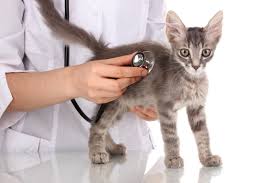When introducing a dog to their new family, planning is crucial…
What Vaccines Does Your Pet Need?
Vaccines are vital in keeping our pets healthy protection from contagious diseases and regular vet visits help keep them up to date on protecting them from contagious diseases.
Vaccines are important no matter where you live or what your lifestyle is. Vets classify vaccine as essenital and non-essential. Let’s talk about the essential ones first.
Essential dog vaccines prevent serious diseases like distemper, parvo, rabies and parainfluenza. The distemper vaccine is given as a combination shot and protects against against up to 7 diseases. The rabies vaccine is administered by itself. If the rabies virus is contracted, it’s fatal for all mammals. Rabies vaccinations for dogs are required by state law. After the rabies vaccine is administered, dogs are required to wear a tag indicating they have received this vaccination. If they bite there’s evidence the rabies vaccine was administered, and the vet can be contacted. Remember, it always easier to prevent than treat a disease.
Essential cat vaccines target the diseases of feline viral rhinotracheitis, calicivirus, and panleukopenia. The feline distemper vaccine is similar to the distemper shot for dogs and covers all these diseases. Rabies is a significant threat to cats and this vaccine is administered by itself. Cats who are let outside are more susceptible to diseases from stray cats so it is even more important that they are vaccinated.
Depending on where you live, your vet may recommend certain non-essential vaccines as well. For cats, these vaccines can depend on whether your cat is an outdoor or indoor kitty.
Feline chlamydial conjunctivitis is a bacterial infection. It causes the eyelid to become infected and filled with pus.
Feline immunodefiency is a viral infection transmitted when cats are in close contact with each other. This vaccine is usually only administered to outdoor cats.
Feline infectious periotinitis is a viral infection that is comming among feral colonies. It’s almost always fatal. Most house cats don’t have a risk of this disease but outdoor cats are seriously at risk.
Bordetella ,also known as kennel cough, causes upper respiratory infections. Symptoms start with a dry cough which progresses to wet cough and even pneumonia if not treated early. It is pread among dogs so it is vital if your dog is boarded, goes to daycare, dog parks and even the groomer. The bordetella vaccine is not 100 percent effective because it is a virus that mutates. But it protects against 85 percent of the strains to keep your pet healthy.
Canine influenza is also a viral upper respiratory disease. It is much more dangerous and deadly than kennel cough and needs to be taken seriously.
Following these simples steps of preventive vaccines will ensure your pet stays happy and healthy. Remember, an ounce of prevention is worth a pound of cure. Routine vet visits are key to catching any changes in your pet’s health.



